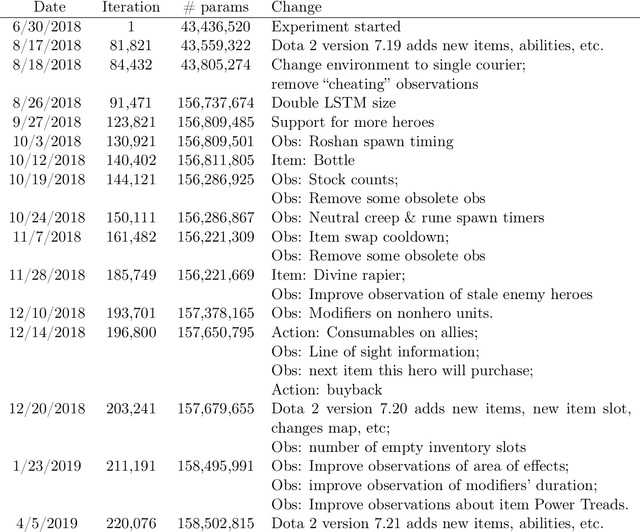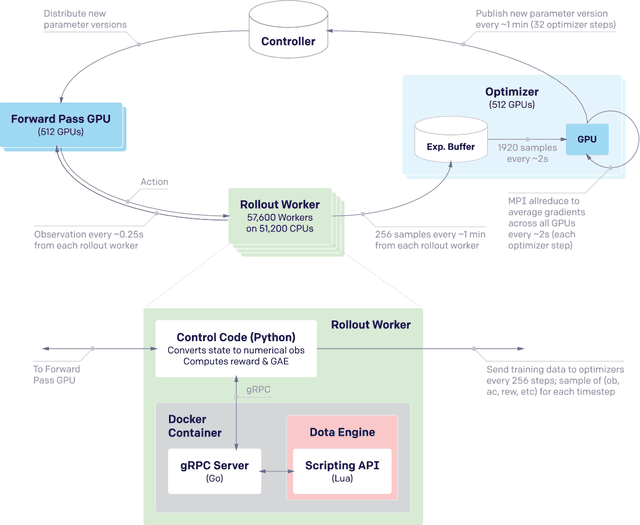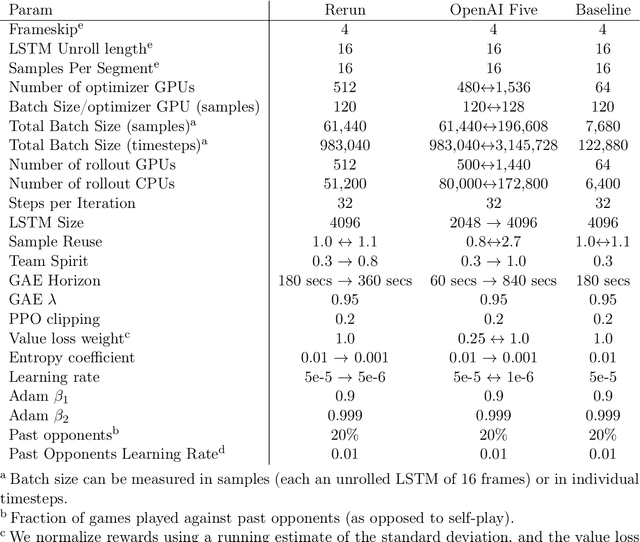Chris Hesse
Dota 2 with Large Scale Deep Reinforcement Learning
Dec 13, 2019



Abstract:On April 13th, 2019, OpenAI Five became the first AI system to defeat the world champions at an esports game. The game of Dota 2 presents novel challenges for AI systems such as long time horizons, imperfect information, and complex, continuous state-action spaces, all challenges which will become increasingly central to more capable AI systems. OpenAI Five leveraged existing reinforcement learning techniques, scaled to learn from batches of approximately 2 million frames every 2 seconds. We developed a distributed training system and tools for continual training which allowed us to train OpenAI Five for 10 months. By defeating the Dota 2 world champion (Team OG), OpenAI Five demonstrates that self-play reinforcement learning can achieve superhuman performance on a difficult task.
Quantifying Generalization in Reinforcement Learning
Dec 20, 2018



Abstract:In this paper, we investigate the problem of overfitting in deep reinforcement learning. Among the most common benchmarks in RL, it is customary to use the same environments for both training and testing. This practice offers relatively little insight into an agent's ability to generalize. We address this issue by using procedurally generated environments to construct distinct training and test sets. Most notably, we introduce a new environment called CoinRun, designed as a benchmark for generalization in RL. Using CoinRun, we find that agents overfit to surprisingly large training sets. We then show that deeper convolutional architectures improve generalization, as do methods traditionally found in supervised learning, including L2 regularization, dropout, data augmentation and batch normalization.
 Add to Chrome
Add to Chrome Add to Firefox
Add to Firefox Add to Edge
Add to Edge